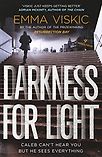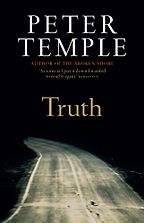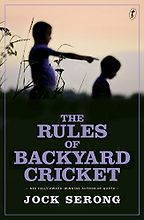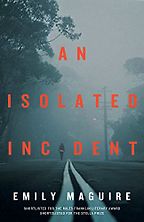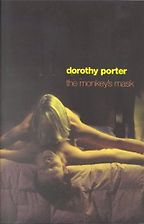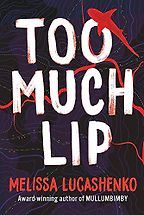It’s a golden era for Australian crime fiction at the moment.
Absolutely. Well, it’s been booming here for a while. But a couple of years ago, the rest of the world suddenly went, oh, hello, Australian crime fiction. So there is quite a library—I don’t want to say backlog—of great crime fiction from the last few decades. I and all the others from this latest wave of crime fiction are standing on the shoulders of some great writers.
When you say crime fiction has been big in Australia for a while, when do you think it started coming to the fore?
Australian readers probably only realised how good it is in the last ten years or so. But we’ve had writers like Peter Corris and Gary Disher, who have been writing for years and years. And Peter Temple, another writer who never quite got the recognition he deserved overseas. Well, he won the Gold Dagger, which is great, but that came quite late in his career. We can also go back to books like The Monkey’s Mask, one of my choices. Although it isn’t that well known, it’s had quite a big effect on a lot of writers.
Let’s talk about Peter Temple, because his 2009 book Truth is your first choice. As you say, he’s a writer who has been active for a long time. Val McDermid, who introduced me to his work a few months ago, described him as “a class act,” saying that his books had done much to raise the profile of Australian crime fiction overseas.
Yes, he introduced crime fiction to a much broader audience. Truth won the Miles Franklin Award, Australia’s highest literary award. That was the first time a so-called ‘crime novel’ had even been shortlisted, I believe, which shocked a lot of people.
Many who had previously thought of crime as a lower, pulpy genre read Truth and suddenly went: oh, wow, this is actually literature. It’s not something to be thrown away. It’s something that can actually say a lot about society. It’s not just entertainment—though there’s nothing wrong with entertainment—but something deeper.
It was very hard for me to choose between Truth and The Broken Shore, Temple’s previous novel. I love The Broken Shore. It’s a story of a broken man in a broken society in a small town—all things I’m very drawn to. But I chose Truth because it shows a different, urban, grittier side of Australia.
It follows a few days in the life of a homicide detective, Stephen Villani; the chaos, the drama, the pathos and the humanity of what the homicide detectives go through. It’s a mirror to what’s going on in society. He’s a man who is completely out of touch with his emotional side, but trying in a very ham-fisted way to understand the mistakes he’s made, and the mistakes his father has made.
One of the things that I particularly like about this book is the insight into Villani’s relationship with his brothers and with his father. There’s a through line in the story about how Villani’s father, who was a truck driver, collected the seed pods of trees as he went on long-haul trips. He’d come back and they would raise the seedlings and plant a forest. I’m actually involved in a seedling-growing scheme. Each year we grow hundreds of native trees from seeds and plant them. It’s a regeneration programme for a lot of local wildlife areas here. So this really connected with me on a number of levels.
I’ve been thinking about this novel a lot lately because of the recent bushfires in Australia. In Truth, there’s a constant bass note of threat. Villani’s father’s home is threatened by fire, and the story ends with the fire. We wonder, will the people survive? Will the land survive? Having grown up with the threat of bushfire, and having written a book myself featuring bushfire, this was something that really resonated with me. It’s a metaphor, but it’s real life as well. When you can get something that works on a real level, and also as a metaphor, it’s a bit of a sweet spot.
This was your last novel, And Fire Came Down.
Yes, that was my second novel, featuring Caleb Zelic, a profoundly deaf investigator. I think you can safely say that in And Fire Came Down he’s not coping. Everything is falling apart. He’s mentally quite unwell and in some ways self-destructive, so setting it in a small town under the threat of bushfire felt right. My latest, Darkness for Light, is third in the four-part series.
By Darkness for Light, Caleb’s been through several wars and quite a few troubles, but he’s trying to get his life back on track. He’s in therapy. He’s reconnecting with the deaf community, which he hasn’t been a part of since he was a teenager. But of course his past won’t leave him alone. His ex-business partner, who has always been bad news for him, comes back into his life. He’s dragged into the murder of a federal policeman and a young girl he knows is kidnapped. Things pretty much go downhill from there.
You have a very fond expression when you talk about Caleb. When you write a series like this, you must spend a lot of time with this fictional persona, over a period of years.
It’s embarrassing to say, but he’s more real to me than most people. The way I write is very immersive. I am in the novel when I’m writing, particularly in the later stages, the last six months or so of writing. I guess you could call it a flow state. It’s actually very similar to my first career as a classical musician: you practise, practise, practise and it’s all about technique. That’s what laying down the story is like for me as well. Then once that’s there, once the notes are there, once the words are there, I very much fall into it. So, Caleb’s in my brain, or I’m in his brain, I’m not quite sure which, but I can access his thoughts. Whereas with real people, I have to guess their thoughts. There’s a little more distance there. But he does drive me up the wall at times. He’s incredibly stubborn. There are pluses and minuses.
“Writing is actually very similar to my first career as a classical musician: you practise, practise, practise”
I wanted to make it a short series, because Caleb has to change as events change. There are consequences of actions. I couldn’t imagine sustaining that over a very, very long series, so I always knew there was going to be an end to it.
Having said that, I can absolutely imagine going away, writing a few more books, and coming back after a jump in time and doing another tight series with him. So I think that’s helping me say, alright, at the end of this, we say goodbye. But maybe I’ll see you again.
Like breaking up with someone. You say to yourself: maybe one day we’ll get back together.
Yeah, definitely.
Let’s talk about your second Australian crime fiction recommendation. This is The Rules of Backyard Cricket by Jock Serong. It came out in 2016, and was a follow up to his debut crime novel, Quota, which won the Ned Kelly Award in 2015.
Okay, so The Rules of Backyard Cricket is about two brothers, Darren Keefe and his older brother Wally. It has a really great opening; we meet Darren when he’s in middle age, and he’s in the boot of a car. He’s gagged, he’s cable-tied and he’s got a bullet in his knee. You just think: hello. The story is told mainly through flashback, which can really drag in a book, but in The Rules of Backyard Cricket it doesn’t because you know you are hurtling towards some end point and you’re pretty sure it’s not going to be good.
We go back and get to know Darren and Wally, and view their relationship— and also wider society—described through the game of backyard cricket. Backyard cricket has its own rules depending on different families. In Darren and his brother’s case, it’s a violent, competitive game of one-upmanship. They are sons of a single mother who is quite fierce and independent but way too forgiving of Darren. There’s a beautiful quote that sums it up:
Mum adores me regardless, loves us both, in fact. She won’t hear a bad word—she said to Wally after the charges were laid that I’d just fallen in with a bad crowd. Bless her—I was the bad crowd.
I thought that was a great description of a relationship. The rest of the novel goes into sports fixing and fraud and illegal betting, and we soon see that Darren has fallen in with a very bad crowd, and that he’s doing some very dodgy things.
The brothers have both gone on to be professional cricketers. I do not like cricket. In fact—I’ve got to be careful saying this in Australia—I hate sport. It takes up a lot of airtime in Australia. People are really, really into sports here. I picked this novel up only because I’d read Jock’s first novel and loved it. I knew he was a great writer, and of course, even though cricket is the background of this book, it is not about cricket. I loved it.
There’s a line early in the book, where they begin playing cricket with a team, and Darren says that it had never occurred to him that it was a team sport. And I just thought: beautiful piece of writing. Jock’s a very lyrical writer, and very funny as well. It’s a dark book, but it’s got these flashes of humour. I really like that in a crime novel. I like things to be dark but then to have these flashes of light, and this book definitely has both those things.
A sort of chiaroscuro.
Yes, exactly. I was in a band called Chiaroscuro once!
You’ve already answered my next question—do you need to be a cricket lover? I think that’s a sign of a really great book; if it takes subject matter that you would not necessarily be drawn to, and reels you in. One of my favourite books of all time is a baseball novel—of all things—called The Art of Fielding. It’s a campus novel about baseball, sports psychology and, somehow, Moby Dick, and I adore it, despite my total disinterest in the sport. What skill!
Absolutely. Quota also had an unusual setting: the world of abalone fishing and poaching.
Let’s talk about the third book from your list of Australian crime fiction highlights. This is Emily Maguire’s An Isolated Incident. This is her fifth novel, and, well, it turns a lot of crime fiction convention on its head.
Yes. An Isolated Incident isn’t a whodunnit at all. One of the things I like in crime fiction is when it’s a whydunnit, or when it’s about the ripple effects of a crime, and An Isolated Incident is very much about the aftermath of a crime.
It follows the story of a local barmaid, Chris, in a small town, Strathdee, after her younger sister is brutally murdered. We meet Chris when she goes to identify the body, then we follow her as she comes to terms, or tries to come to terms, with her sister’s death. It’s also about the reactions of the town folk. We actually find out very little about the murder.
As I said, it’s a small town setting. I do like books set in small towns. My novels are set between the city and a small town, because to me towns are very much like families, with all the pluses and negatives of a family. I’ve lived in small towns and they can be very supportive and very claustrophobic. You’re rubbing up against the same people day after day. Everybody knows your secrets, they know what you were like in school, they know what you were like as a teenager. They know your history.
Five Books interviews are expensive to produce. If you're enjoying this interview, please support us by donating a small amount.
For Chris, she’s very much been cast in the role of ‘slut’. She developed this womanly figure at an early age, was always drawing the male gaze, she says, and so she eventually decides, well, that’s my role, that’s what I’m going to be. She’s not treated particularly well by the townsfolk, although she’s by no means an outcast. She’s a well-liked local barmaid. But you can see that she has been cast in this role.
Alongside that, we’ve got the media storm that descends upon the town. We see this a lot in the real world with crimes against beautiful, young, white women. Half of the book is narrated by young reporter who arrives in town to report the case. So we see both of those things coming into play together: the tension between needing the media attention so the crime can get solved, and not wanting the media attention, because it feels voyeuristic.
It’s a beautifully, beautifully written book. And it did something I didn’t ever think would be possible, which is that it made me feel empathy for, and perhaps even sympathy for, a man who’s been domestically violent. That’s Chris’s ex-husband. He is a reformed character. They’re separated, but he comes and cares for Chris. Emily Maguire manages to make us empathise with him; it’s a bit of a miracle to pull off, I think.
This book, like Truth, introduced crime fiction to a much wider literary audience. It was shortlisted for the Stella Prize and the Miles Franklin Award, and it isn’t talked about as a crime novel—but my theory is, if it’s got a crime, it’s a crime novel. This one is centred around a murder. Maybe you’d call it a psychological thriller.
Yes, that’s an interesting point. Does it rankle, that sense of there being crime fiction, and then literary fiction, and never the twain shall meet?
It’s sometimes just down to marketing—and where a book needs to sit on a shelf, in the library or a bookshop. It needs to go somewhere. But what is frustrating is the assumption that literary fiction is well-crafted and thoughtful, that it talks about deeper things, and that crime fiction is on the far end of that spectrum, that it’s only about plotting, adventure, entertainment. Whereas the best books actually have a combination of both.
“There’s crime fiction out there that is stunningly written, thoughtful, provoking, and very, very deep”
There’s certainly literary fiction out there that is badly written and doesn’t have a good plot. The same can be said for crime fiction as well. There is crime fiction out there that is stunningly written, thoughtful, provoking, and very, very deep. It’s the idea that they’re separate things that’s frustrating, really. But that is changing, as you can see from these novels I’ve selected—not just the fact that they were written, but the fact that they’ve been hugely embraced by the wider community.
I’ve had people read my books who are really keen crime readers, but I’ve also had a lot of people say to me, ‘I’d never read a crime book before.’ I think more people are open to reading crime novels because we’ve had writers like Peter Temple and Emily Maguire; ten years ago, they wouldn’t even pick it up because it’s had ‘thriller’ or ‘crime’ on the cover.
Yes. I love fiction that combines strong plotting with literary flair, so this reading list is completely up my street. Especially, actually, this next book. This is The Monkey’s Mask by Dorothy Porter: a crime novel-in-verse.
I remember when I first read this. It was an incredibly romantic experience; I was with my now husband and a few friends, hiking in Tasmania. This was the one book we had with us, and we read it out loud each night around the campfire. If you’re going to read a novel-in-verse, this is the way to do it. It was fantastic.
I love it. It’s a very funny book. It’s a real classic gumshoe book in many ways.
A gumshoe book?
A gumshoe is an old fashioned term for a private eye. It’s the classic loner detective with the sexy secretary and a nose for trouble, like Phillip Marlowe or Sam Spade.
Got it.
So we have a private investigator, Jill. She calls herself ‘a butch dyke.’ A father and a mother come to her, saying their young daughter Micky, a university student, has gone missing. Please, will Jill find her?
And it evolves like a classic Sam Spade mystery, with the detective going out, talking to people, delving deeper into the machinations of academia and poets—which is just a lovely through-line—and then this fantastic femme fatale figure comes into it as well. It ends up becoming a very steamy lesbian romance along with the investigation. All in poetry, with some really funny little lines.
“This sparseness of the writing reminds me of Fred Williams, the Australian landscape painter. You get a sense of the landscape through just a few brushstrokes”
One of the reasons I like it is the sparsity of the writing. They way Porter describes people with a little throwaway line, like “pubic-hair beard.” Or there’s a beautiful description of someone tall and pale, “like the kind of pasta you spill on your shirt on a first date.” So descriptive and funny at the same time. This sparseness of the writing really reminds me of Fred Williams, the Australian landscape painter. His paintings are almost monochromatic: there’s just background colour and these little twiggy trees. But you get a sense of the whole landscape through just a few brushstrokes. Dorothy Porter does that too.
Jill, the PI, doesn’t feel secure in her own intellect. She feels lower class; she feels she needs to somehow make up for the fact that she’s not university-educated. And she’s very much the outsider in this world. We’re not meant to have class in Australia, we’re famously class-less. But this novel says: I think you do. So I like how much it manages to fit into not many pages, not many words. Also, again, that sense of humour, even though it’s a story about a murder.
And does it succeed as a murder mystery?
It does, actually. It’s quite simple. You think you’ve worked it out halfway through, but Porter leaves it a little bit up in the air at the end. I really like that sense of things not being quite tied up. It’s not the most complex plot, but if it got more complicated, it probably wouldn’t work in this form. You would get so into trying to work out the whodunnit, and the when, the what time of night, that you’d probably get a little bit lost. So I think the simplicity of it is actually a real boon in this case.
That brings us to our final title, in your Australian crime fiction reading list: Too Much Lip by Melissa Lucashenko. This is a dark comedy and another past winner of the Miles Franklin Award.
Yes, this is another book that isn’t talked about as a crime novel—it’s hailed as a literary novel. But the crime element is at the heart of the novel; without it, the novel couldn’t exist. So I’m totally owning it! I love this book.
One of the things that really grabbed me about Too Much Lip was the voice. It’s absolutely unique. It’s very cheeky. It’s very irreverent. It can be quite dark as well.
Melissa Lukashenko is Aboriginal Australian and she uses a lot of language words, and a lot of slang.
To clarify for our international audience: by ‘language words’, you mean words in her indigenous language.
Yes. There are hundreds of Aboriginal languages in Australia. Some were eradicated by brutal government policies, but many remain or are being reclaimed. Melissa Lucashenko is an Aboriginal writer from northern New South Wales and uses words from the local Bundjalung language.
We mainly see the novel through the eyes of Kerry Salter. She arrives in town on a stolen Harley and you immediately know she’s a bit of a bad girl. She stops, is looking at a couple of crows fighting over a dead snake, and she starts talking to the crows—she understands them. It keeps you on your toes, this book. There’s an element of magical realism, although that’s slightly the wrong term for it. There’s an otherworldly aspect to it; it’s a fine but important thread through the novel.
Kerry is back in town because her grandfather is dying. She doesn’t want to be in town; she’s had a falling out with her family. We soon learn that Kerry’s sister Donna disappeared when she was 15 and was never seen again. Kerry has a history of wild living; she’s done jail time, as has her brother. We begin to discover the local history of the town, and of how her grandfather made good. And, as we slowly get to know the characters, we understand a little bit more about why Kerry left, and why the family is still incredibly strong despite being fractured.
“Crime fiction speaks to a lot of deeper questions. It’s about morality. It’s about justice”
There’s fantastic dialogue in this book. I love it, I can hear the characters talking, they come alive. I’m not going to spoil the plot—so I won’t say why Donna disappeared—but, needless to say, while there’s a lot of humour in this book, it does get into some very dark territory.
In the back of the book, Melissa Lucashenko says: to anyone doubting the veracity of these sorts of stories, every single incident in the novel has happened to her extended family, or is based on real life events she’s verified through newspaper and court reports. So, while we are very entertained by the book, we learn a lot through it as well, without it being preachy at all.
That brings us back to the point you made about the close co-existence of light and dark in crime novels. It ties into my last question, which is about the appeal of crime fiction. Why does a good murder make for such enjoyable reading?
I think there are many reasons, and they are probably different for different people. I suspect it also changes depending on circumstances and mood. But the most obvious one is simply entertainment: there needs to be something driving you to turn the page. I often think about it like this: the murder, or the crime, is the vehicle that’s taking you somewhere. Who did it? Why? Who’s next? I love this character, I hope they don’t die.
So we’ve got that propelling you forwards. But the best crime novels are all about the characters. If you don’t care about the character, you don’t care if they survive. You don’t necessarily have to like them, but you have to be interested in them and care about them in some way.
All of these novels I’ve just been talking about have characters that you become invested in. Maybe you identify with them. Maybe you’re just intrigued by them. But you get inside their head in some way.
Also, crime fiction speaks to a lot of deeper questions. It’s about morality. It’s about justice. They don’t always end with things neatly tied up, but you can definitely gain some understanding of the world along the way. Why do people do the terrible things they do? Why do they do the wonderful things they do? Crime novels are naturally suited to exploring these sorts of questions. A good crime book will get you on a number of levels.
Interview by Cal Flyn, Deputy Editor
April 13, 2020
Five Books aims to keep its book recommendations and interviews up to date. If you are the interviewee and would like to update your choice of books (or even just what you say about them) please email us at [email protected]

